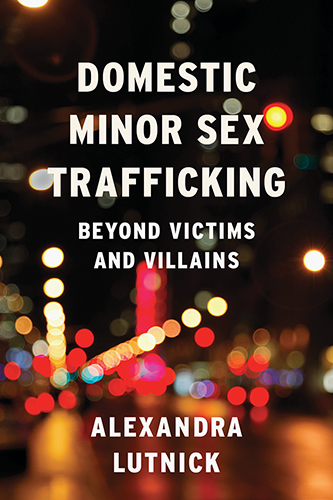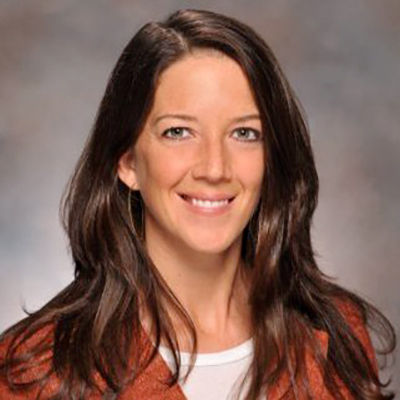Study Partners

As an SF State student, Alexandra Lutnick (M.A., ’04) first came to embrace a research approach that incorporate the views and priorities of study subjects.
In 2002, when I started working on my master’s degree in sexuality studies at SF State, I had already been working at the St. James Infirmary (SJI) in San Francisco for a couple years. SJI is the nation’s only full-spectrum health clinic run by sex workers for sex workers. As a peer counselor and administrator there, I knew I’d need an advanced degree to conduct participatory research with sex workers, which is research that directly reflects their priorities and needs.
At SJI I worked with young people, adults, transgender, intersex and genderqueer individuals and people involved in sex work as a choice, because of circumstances or coercion. I saw firsthand how poverty, homelessness, stigmatization, violence (perpetrated by state actors and by individuals) and criminalization (of selling sex, buying sex and drug use) impacted their lives.
Despite the oppression daily facing many SJI community members, they are vibrant, resourceful, thoughtful and adept at harm reduction. Working with them motivated me to devote my career and graduate studies to research that can be used to advocate for changes that will improve the lives of those involved in the sex industry.
I arrived at SF State knowing one thing for sure: I wanted to work with some of the best sexuality researchers and theorists to equip myself with the skills to do high-quality research myself. I feel so fortunate that I got to learn from Deborah Tolman’s research on adolescent sexuality, Jessica Fields’ masterful understanding of queerness and research methods and Neils Teunis’ ethnographic style. Co-teaching “Sex, Power and Politics” with Neils gave me a glimpse into how one can — to borrow author and activist bell hook’s term — teach to transgress; that is, how we can make teaching a practice of freedom.
When developing my thesis, I turned to the SJI community and asked what they thought would be most useful. Based on their feedback, I wrote a history of SJI under Neils Teunis’ guidance that the journal Sexuality & Culture published in 2006. In my last semester at the University, I was hired to direct a federally funded, peer-run study about the lived experiences and health of cisgender women, or women whose gender matches their biological sex, involved in sex work. We conducted conversation-style interviews with 40 cisgender women and then surveyed 247 cisgender women. The majority of women we interviewed supported the removal of statutes criminalizing sex work, because it would help create a social and political environment in which they would have legal rights and could seek help when they were victims of violence. The women interviewed also highlighted abuses perpetrated by police officers. Close to half reported experiencing verbal, emotional, physical or sexual abuse by law enforcement, and nearly 25 percent reported being threatened with arrest unless they had sex with a police officer. The study was an incredible opportunity to collaborate with sex worker-researchers that wouldn’t have come my way without the foundation in research I gained through SF State. Leading that study, and publishing about our participatory approach in hopes that it influences others to involve community members in all aspects of the research process, has been a career highlight and set the stage for my continued research, advocacy and academic endeavors.

Many years and research projects later, I returned to school and completed a Ph.D. in social welfare at the University of California, Berkeley. I also recently published a book, Domestic Minor Sex Trafficking: Beyond Victims and Villains (Columbia University Press, 2016) based on my doctoral dissertation. In its pages, I share the nuanced realities of young people involved in sex trades and push readers to think beyond the victim and villain binary by spotlighting ways in which family, friends, policy and the state are implicated in their involvement. The book feedback I find most rewarding comes from people who were involved in the sex industry as young people who tell me I captured their realities. Today, I work as a senior research scientist for a nonprofit institute. With my research, I am committed to amplifying the voices of people who too often go unseen and unheard in our society. Along with my colleague, social welfare expert Minh Dang, I am now directing a researcher-survivor-ally evaluation of the San Francisco Mayor’s Task Force on Anti-Human Trafficking. This means people who have experienced trafficking are involved in all aspects of the project. Similar to the sex worker study I directed while completing my SF State degree, it’s a grassroots approach that challenges the hierarchical power relations inherent to research.
There’s a phrase I learned when I first started working at SJI: “Nothing about us without us.” When policy — or research — can impact a group, that group must be involved. My experience conducting participatory research at SF State showed me the validity of that philosophy, which continues guiding my work to this day.
Watch an online video of Alexandra Lutnick speaking about her book Domestic Minor Sex Trafficking: Beyond Victims and Villains.
By ALEXANDRA LUTNICK